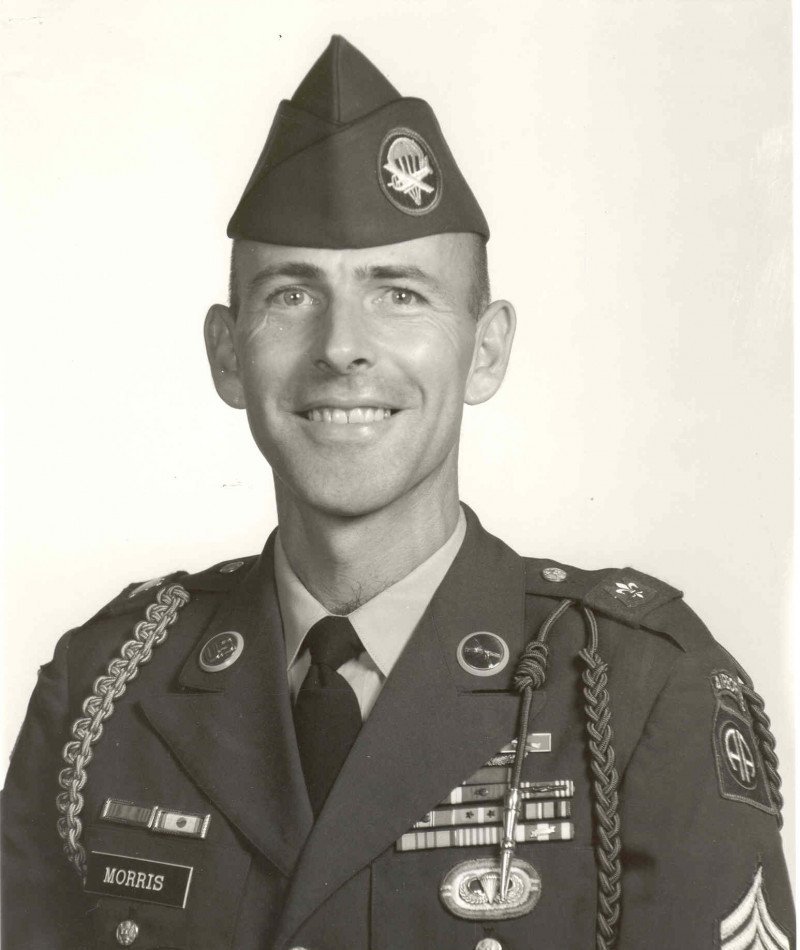Medal of Honor: Charles B. Morris – Vietnam War, June 29, 1966
cting on signs of enemy activity, he moved ahead of his squad to investigate—and came face to face with a camouflaged enemy machine gun just 20 meters away. A burst of fire struck him in the chest, but Morris returned fire instantly, killing the gunner.
June 29, 2025

 Charles Bedford Morris
Charles Bedford Morris
Staff Sergeant, U.S. Army
Conflict: Vietnam War
Unit: Company A, 2nd Battalion (Airborne), 503rd Infantry Regiment, 173rd Airborne Brigade (Separate)
Date of Action: June 29, 1966
Location: Republic of Vietnam
Summary of Action:
In the searing heat of the Vietnamese jungle, Staff Sergeant Charles Morris crawled toward danger alone. Acting on signs of enemy activity, he moved ahead of his squad to investigate—and came face to face with a camouflaged enemy machine gun just 20 meters away. A burst of fire struck him in the chest, but Morris returned fire instantly, killing the gunner. Bleeding heavily, he lobbed a grenade that wiped out the rest of the crew, then crawled back to report what he had seen.
Even as his platoon came under heavy fire, Morris refused medical aid, instead positioning his men and rallying their defense. For eight hours, he fought through pain, chaos, and multiple wounds. When the platoon medic was killed, Morris treated himself and then crawled through incoming fire to aid others. A grenade shattered his left hand, yet he kept fighting—arming and hurling grenades with one hand, personally killing several enemy soldiers.
Spotting an enemy machine gun flanking his platoon, Morris crawled with a fellow soldier to silence it. His comrade was killed, and Morris was wounded again—but he pressed on, firing his rifle one-handed to eliminate the threat. Wounded four times, he continued dragging men to safety and coordinating their defense until reinforcements arrived.
Documents found on the enemy dead revealed a planned ambush of a South Vietnamese battalion—a plan foiled thanks to Morris' courage. His actions saved countless lives and turned the tide of battle. For his unyielding heroism, Charles B. Morris was awarded the Medal of Honor.
Medal of Honor Citation:
For conspicuous gallantry and intrepidity at the risk of his life above and beyond the call of duty. Seeing indications of the enemy’s presence in the area, S/Sgt. Morris deployed his squad and continued forward alone to make a reconnaissance. He unknowingly crawled within 20 meters of an enemy machinegun, whereupon the gunner fired, wounding him in the chest. S/Sgt. Morris instantly returned the fire and killed the gunner. Continuing to crawl within a few feet of the gun, he hurled a grenade and killed the remainder of the enemy crew. Although in pain and bleeding profusely, S/Sgt. Morris continued his reconnaissance. Returning to the platoon area, he reported the results of his reconnaissance to the platoon leader.

As he spoke, the platoon came under heavy fire. Refusing medical attention for himself, he deployed his men in better firing positions confronting the entrenched enemy to his front. Then for 8 hours the platoon engaged the numerically superior enemy force. Withdrawal was impossible without abandoning many wounded and dead. Finding the platoon medic dead, S/Sgt. Morris administered first aid to himself and was returning to treat the wounded members of his squad with the medic’s first aid kit when he was again wounded. Knocked down and stunned, he regained consciousness and continued to treat the wounded, reposition his men, and inspire and encourage their efforts.
Wounded again when an enemy grenade shattered his left hand, nonetheless he personally took up the fight and armed and threw several grenades which killed a number of enemy soldiers. Seeing that an enemy machinegun had maneuvered behind his platoon and was delivering the fire upon his men, S/Sgt. Morris and another man crawled toward the gun to knock it out. His comrade was killed and S/Sgt. Morris sustained another wound, but, firing his rifle with one hand, he silenced the enemy machinegun. Returning to the platoon, he courageously exposed himself to the devastating enemy fire to drag the wounded to a protected area, and with utter disregard for his personal safety and the pain he suffered, he continued to lead and direct the efforts of his men until relief arrived.
Upon termination of the battle, important documents were found among the enemy dead revealing a planned ambush of a Republic of Vietnam battalion. Use of this information prevented the ambush and saved many lives. S/Sgt. Morris’ gallantry was instrumental in the successful defeat of the enemy, saved many lives, and was in the highest traditions of the U.S. Army.
